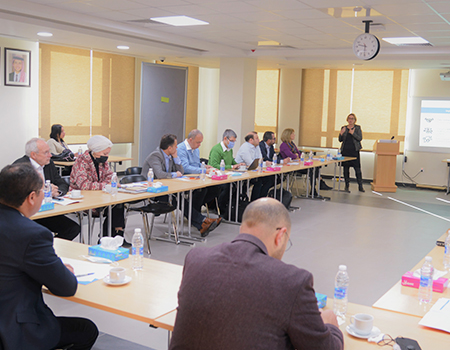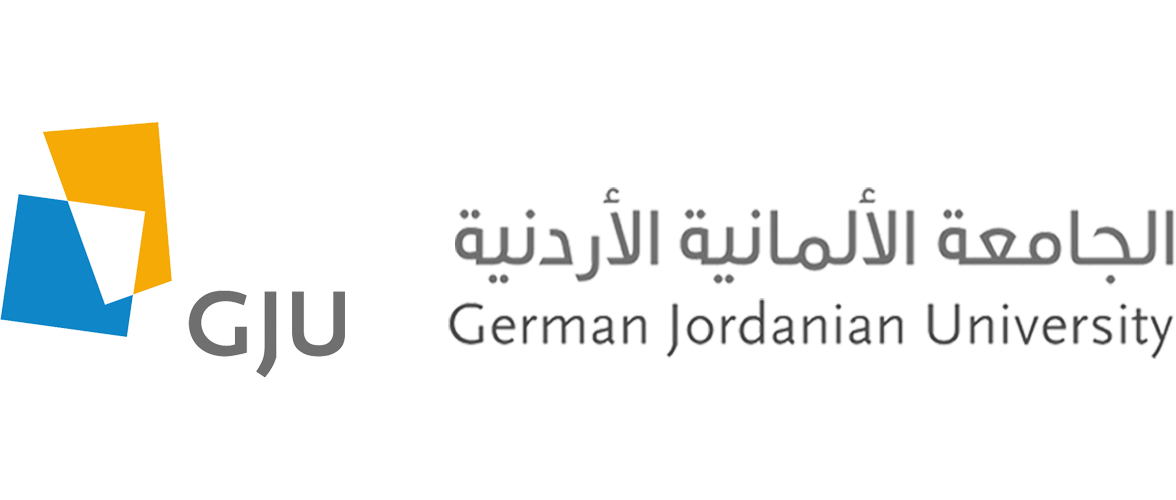Amman- 21 December 2021

The German Jordanian University (GJU) held a workshop on “Areas of Current and Future Responsibilities” in the presence of the President of GJU Prof. Ala’aldeen Al-Halhouli, Vice Presidents Prof. Ralf Rosskopf, Prof. Malek Alsharairi, the Dean of Deanship of Innovation, Technology Transfer and Entrepreneurship (DI-TECH) Dr. Nidal Al- Shawawreh, with the involvement of GJU’s Deans and professors.
The workshop aimed to familiarize the attendees with the structure of the Dual Studies Program, review the curricula and study plans to facilitate the regulations for the students, share success stories, achievements, and discuss challenges.
Prof. Al-Halhouli emphasized that implementing Dual Studies is one of the important strategic goals at GJU aiming at applying it to all GJU’s departments. Dual Studies opens the huge opportunity to work hand in hand with the industry and in order to strengthen the applied dimension of the University and graduate students that are ready for the job market.
Furthermore, Prof. Al-Halhouli appreciated the support of GIZ and the participating companies for their investment in the program and awareness of its benefits. He stressed on the future approach at GJU to apply innovation in all areas, like in research, education, partnerships, management, stakeholders, and community service.
Dual Studies Advisor, Simone Strasburger, introduced the participant to the structure of the Dual Studies program, the process of attracting potential companies, contract signing, and the selection of the students.
She also shared some statistics about the progress mentioning that already four study departments at GJU joined Dual Studies so far: Computer Sciences, Logistic Sciences, International Accounting, and Industrial Engineering, and announcing that four new departments are planning to join next year and another three the year after. Currently 68 students are enrolled in Dual Studies with a growing partner network of 39 companies.
During the event, working groups discussed some of the major challenges of dual studies: the implementation of the dual courses during the practical phases, as well as the graduation projects and the acquisition of new partners.
It is worth mentioning that the Dual Studies track is a comprehensive cooperative educational concept. Students work and study at the same time. It is a reaction to two challenges: How to raise the employability of university graduates and how to provide the labor market with qualified employees who possess sound skills in practice and theory.

